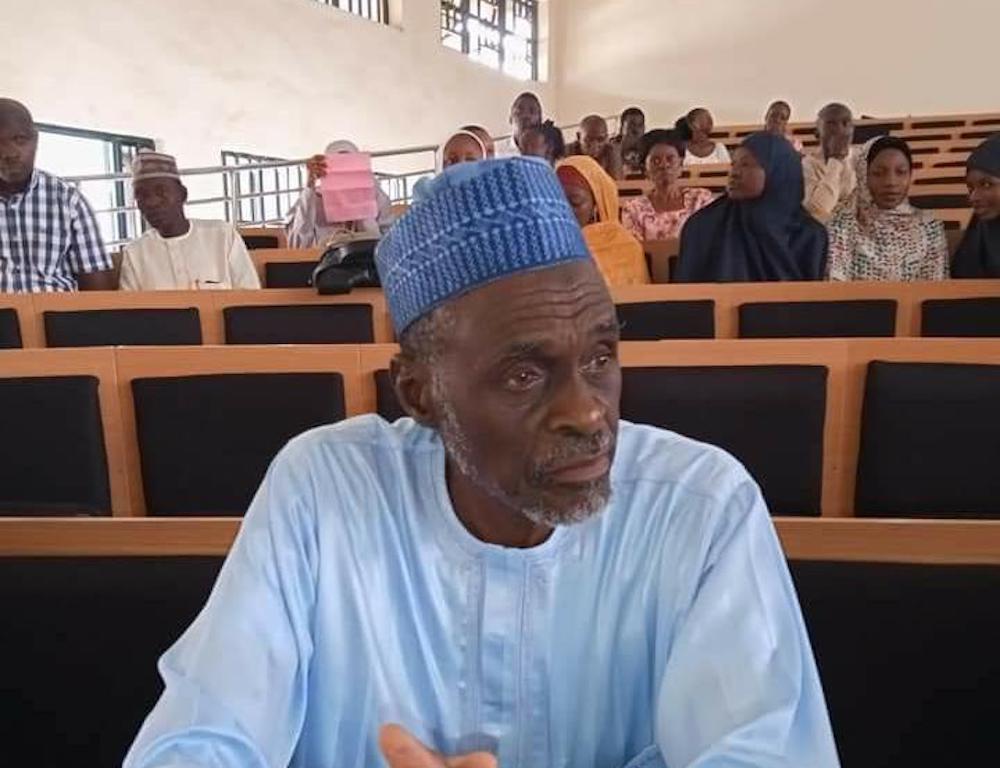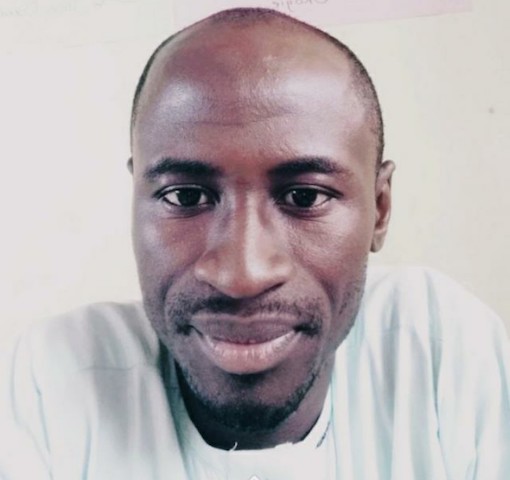

In all the positions he held, Dr Saleh was widely known to have never dipped his hands into the public purse. His principle, narrated by closest friends, was that you must not be lazy and you must expect to be paid according to what you sow. If, as it happened, he became answerable to the authority of others, he either followed the legitimate process, free of extortion or resigned the position for Allah’s sake.
He was everything to me. I acclimatised to the ambience of his thoughts, ideas and actions. His influence on me was immeasurable. Allahu Akbar, Bappa breathed his last on May 21.
Mallam was not just ‘Dan Boko’!
I have never seen a university academic more content with the times of the Salaat, who couldn’t be distracted by academic schedules, a man ever ready to fulfil his obligations, like Dr Saleh Abubakar. As a devout Muslim, his struggle to keep it neat with Allah has come to a fulfilling end. Beautiful words from many of his funeral attendees attested to the fact that Mallam was not, by his behavioural traits, that ‘Dan Boko’ you many could have imagined. He’s widely understood to have accustomed himself with the sound norms and values of society, he cared for relatives and neighbours and had sweet words for disciples, kids and young ones. His generosity was legendary. Indeed, as the Imam who led the funeral prayer said, ‘Salaat, Salaat, Salaat, is something he couldn’t miss!”
Born in 1948, Bappa was a senior lecturer in the Department of History, Ahmadu Bello University, Zaria, where he taught for more than 40 years (1977 to 2020). Given his record of engagement and dedication to service, the University administration, under then vice chancellor, Professor Adamu N. Muhammad, appointed him as the chairman of the Interim Joint Matriculation Board (IJMB) Task Force Unit of the Ahmadu Bello University, Zaria from 1986 to 1989. Having completed that assignment, he then joined the services of the College of Preliminary Studies, Yola, as its principal from 1989 to 1991. Given his excellent academic leadership performance, the then Gongola State government approved his appointment as the provost of College of Education, Jalingo between 1991 and 1994. After that, he served as a delegate to the Nigerian National Constitutional Conference from 1994 to 1995. Thereafter, in 1996, he became the acting registrar, Joint Admission and Matriculation Board (JAMB), a position he held for just three months, and further on in the same year till 2007, he served as the director/head of the Board’s Admission and Test Development Department. Until his death, Dr Saleh retained his position as a senior lecturer with the Kaduna State University.
In all the positions he held, Dr Saleh was widely known to have never dipped his hands into the public purse. His principle, narrated by closest friends, was that you must not be lazy and you must expect to be paid according to what you sow. If, as it happened, he became answerable to the authority of others, he either followed the legitimate process, free of extortion or resigned the position for Allah’s sake. Simple and contented as he remained, he was a fountain of inspiration to all of us. Part of his incorruptible ways could be discerned from his ‘shooting match’ with the authorities in JAMB, and I quote him in his 2020 exposé lamenting that:
“As a Chief Executive, I was sadly deficient in other skills, not least those needed to keep the bosses happy and that created serious issues for me.” He added: “In the course of time, it became obvious that banks were pulling a fast one on the Board with respect to the sale of these application documents. This was because they had turned the forms into a commodity whose value was more than its declared price. Therefore, hoarding and diversion of forms became the order of the day as a lot of money was accrued to the banks while critical stakeholders such as parents and candidates received the short end of the stick. To put a stop to all that, I insisted that banks must pay upfront for all the forms they needed and that the Board would not accept so-called unsold forms back. That was to ensure that the Board received the revenue due to it while at the same time eliminating hoarding and diversion of forms to other states.”
Dr Saleh trained a good number of sound academics, including Dr Kabir Chafe, Professor Mustafa Muhammadu Gwadabe, Dr Salisu Bala, Mal Idi Ronke and several others. However, he did not put much ink into scholarly historical writings, as his colleagues and disciples tended to have done. Going by his narration (and I am careful not to misinterpret his words), he told me that he did not write much in historical scholarship but in poetry — a writing skill he had nurtured from his elementary school days! I have access to the draft collection of his poems and I’ll put effort in making them available to readers, going forward. This is something that many don’t know about him and it explains the fact that in terms of the number of scholarly academic writings, Dr Saleh was more of a poet and, of course, still not less a historian. This has also proved the fact that his extraordinary skills in English and language communication were not by accident. Indeed, his stay in the Department of History was a busy time for proof-reading, correcting and improving the English of so many academic theses and dissertations, including those of his colleagues and seniors.
Dr Saleh was the supervisor for virtually everything I drafted, including personal write-ups that were outside the regular academic mentorship. He supervised my project and offered insightful comments to my dissertation. Typical of us, students, we always said that “this man, you write and he cancelled … red biro everywhere and still he would ask you to write again … wahala all dey with this Bafullata!” This explained how our reactions disagreed with his vetting style of our projects at the undergraduate level. It turned out in unending gratitude to a man, due to whose masterly supervision and insightful comments, my erstwhile F9-level of English expression began to take an improved shape!
I only realised that it was deliberate when the then Project Coordinator of the Department, the late Toure Kazah Toure assigned my proposal to him. “You must improve your English”, the late Toure must have said in his mind, and thank God for how it has all ended. I was really fortunate that those two astonishing scholars (and may His mercy shower on their graves) agreed on mentoring my talent to the present bearable standard of excellence. I could recall a time when Dr Saleh asked that our projects be made available to him and someone must have reached him at home for his signature on the documents. Being the male in our group, he asked that I should collect the project copies of two other female colleagues (Khadija Abdullatif and Nafiu Basirat) and bring these to him in Kaduna. Unknown to us, he had been sick at the time, which was why he couldn’t be in Zaria. Still, the God-fearing man wouldn’t let me take the burden of transportation down to him, and he therefore paid for my round trip to him and even added some extra cash on top of this! Such is the nature of a man I can’t simply describe as my mentor but ‘my father’.
Many who have seen my Facebook announcement of his death thought he was my real father. This is because, beyond academic mentorship, Dr Saleh treated me as a ‘son’ full of privileges; he welcomed me at any time, and I entered his house, with or without his permission, slept, woke-up and took my bath. I would eat, rest and stay there for as long as I wished. When I was writing my thesis recently, I was inseperable from his computer until I rounded up the work. He once told me that he had never thought I could keep in contact and become so close, more than many of his other students. I really got contented by his dear utterances and I thank God for the luck I had in being very close to him till the end.
Dr Saleh died at a ripe age of 74, leaving 12 children, including those of his late wife who died in an accident barely two years ago. My sincere condolences to the member of his family: Sister Nafisa, Fauziyya (a poetess), Officer Ammar, Mal Ibrahim, Barrister Umaima, brother Uthman and their darling siblings Nana, Umar Faruk and all who have not been mentioned, including his relatives – Gidado, Abdurrahman, Lankwan and all-and-sundry. I owe my mentor everything, including prayers, for he was a man who never said ‘NO’ to any of my requests. ‘Yes’ was always his answers to me. May his pure and gentle soul rest on.
[email protected]
WATCH: Governor Yahaya Bello’s Roadmap to Hope 2023


Support PREMIUM TIMES’ journalism of integrity and credibility
Good journalism costs a lot of money. Yet only good journalism can ensure the possibility of a good society, an accountable democracy, and a transparent government.
For continued free access to the best investigative journalism in the country we ask you to consider making a modest support to this noble endeavour.
By contributing to PREMIUM TIMES, you are helping to sustain a journalism of relevance and ensuring it remains free and available to all.
Donate
TEXT AD: Why women cheat: what every Nigerian man should know


(function() {
var _fbq = window._fbq || (window._fbq = []);
if (!_fbq.loaded) {
var fbds = document.createElement(‘script’);
fbds.async = true;
fbds.src = ‘//connect.facebook.net/en_US/fbds.js’;
var s = document.getElementsByTagName(‘script’)[0];
s.parentNode.insertBefore(fbds, s);
_fbq.loaded = true;
}
_fbq.push([‘addPixelId’, ‘756614861070731’]);
})();
window._fbq = window._fbq || [];
window._fbq.push([‘track’, ‘PixelInitialized’, {}]);
!function(f,b,e,v,n,t,s){if(f.fbq)return;n=f.fbq=function(){n.callMethod?
n.callMethod.apply(n,arguments):n.queue.push(arguments)};if(!f._fbq)f._fbq=n;
n.push=n;n.loaded=!0;n.version=’2.0′;n.queue=[];t=b.createElement(e);t.async=!0;
t.src=v;s=b.getElementsByTagName(e)[0];s.parentNode.insertBefore(t,s)}(window,
document,’script’,’https://connect.facebook.net/en_US/fbevents.js’);
(function(d, s, id) { var js, fjs = d.getElementsByTagName(s)[0]; if (d.getElementById(id)) return; js = d.createElement(s); js.id = id; js.src = ‘https://connect.facebook.net/en_GB/sdk.js#xfbml=1&appId=249643311490&version=v2.3’; fjs.parentNode.insertBefore(js, fjs); }(document, ‘script’, ‘facebook-jssdk’));


